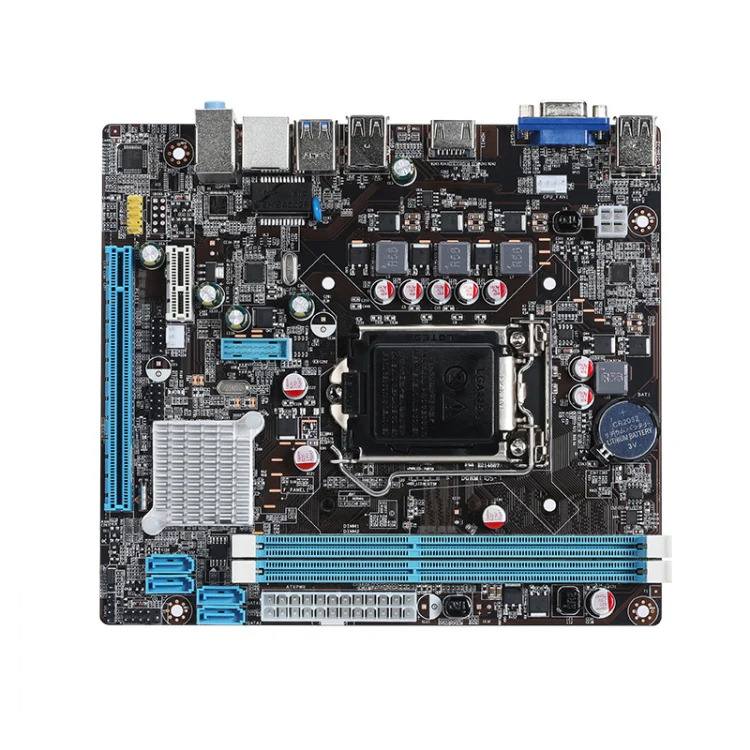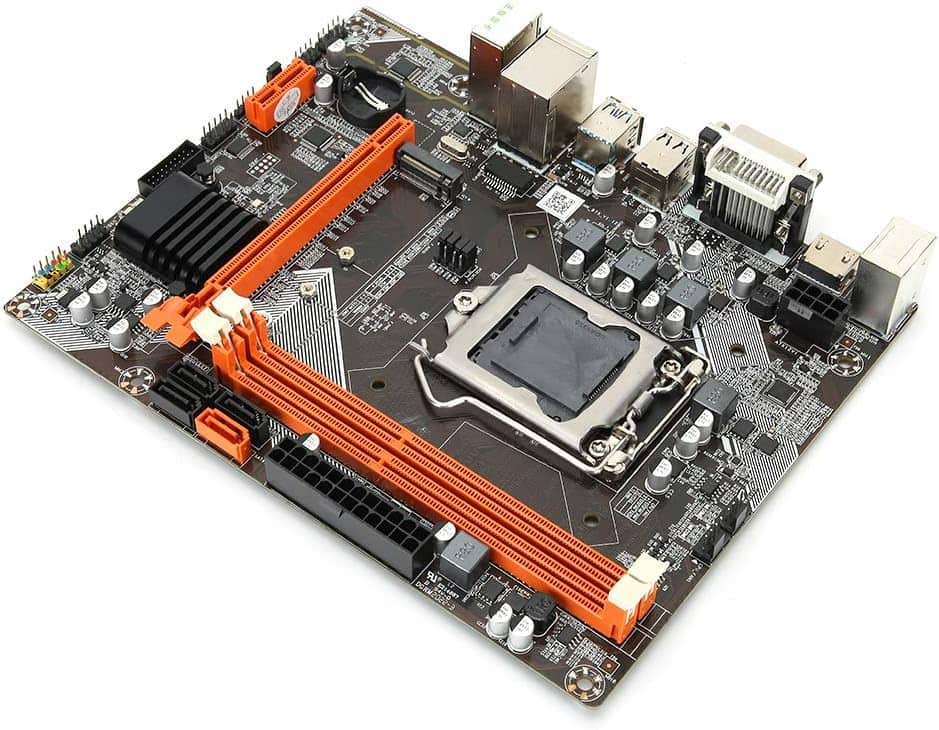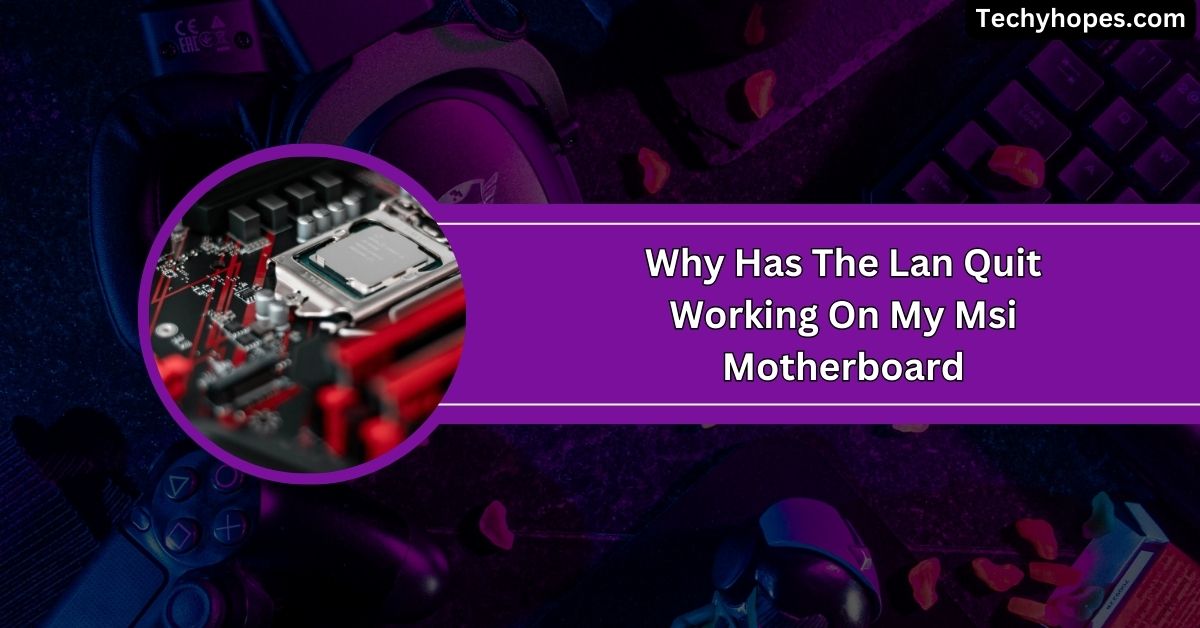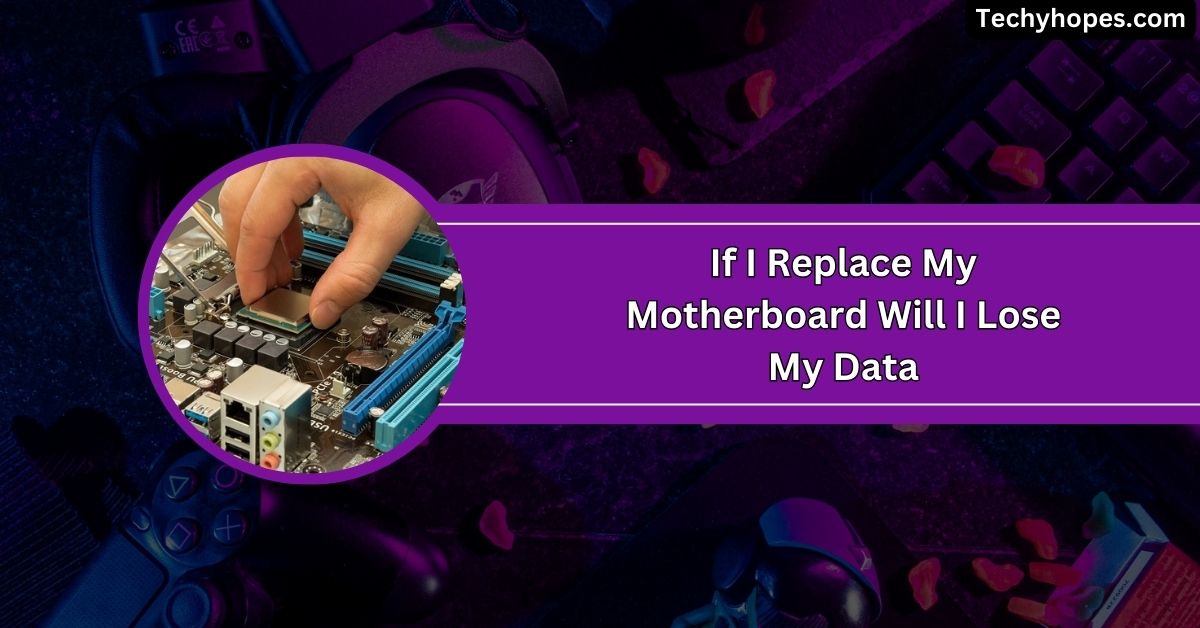The B75 motherboard supports Intel’s 2nd and 3rd generation CPUs, including Core i3, i5, i7, and Pentium processors. It is not compatible with 4th-generation Intel Core CPUs, such as the Haswell series.
In this article, we’ll discuss everything you need to know about the B75 motherboard, from its features and supported CPUs to upgrading options, ensuring that you make an informed decision about your next build.
What is the B75 Motherboard?
The B75 motherboard is a part of Intel’s 7-series chipset family. It was created for Intel’s 3rd-generation Core processors, also called Ivy Bridge.
This motherboard is great for regular users because it offers useful features like USB 3.0, PCIe 3.0, and support for up to 32GB of RAM.
It doesn’t allow overclocking, but that makes it more stable. Affordable and reliable, the B75 motherboard is a good choice for everyday use and light work or gaming.
Key Features of the B75 Motherboard:

- Supports 3rd-Generation Intel CPUs: Works with Core i3, i5, i7, Pentium, and Celeron processors (Ivy Bridge).
- LGA 1155 Socket: Ensures compatibility with supported processors.
- RAM Support: Handles up to 32GB DDR3 memory with 4 slots.
- USB 3.0 Ports: For faster data transfers and modern connectivity.
- PCIe 3.0 Support: Enhances performance for graphics cards and other devices.
- SATA III (6Gbps): Speeds up storage devices like SSDs.
- Integrated Graphics Support: Works with Intel HD Graphics for basic tasks.
What Generation of CPUs Does the B75 Motherboard Support?
1. 3rd Gen Intel Core (Ivy Bridge):
Ivy Bridge processors were introduced in 2012 and are the primary CPUs supported by the B75 motherboard. They include the following models:
- Core i3: Ideal for basic tasks and budget-friendly builds.
- Core i5: Perfect for multitasking and mid-range gaming.
- Core i7: Provides excellent performance for demanding workloads like video editing and 3D rendering.
2. Intel Pentium and Celeron (Ivy Bridge):
In addition to Core processors, the B75 motherboard supports entry-level Pentium and Celeron CPUs from the Ivy Bridge lineup. These processors are suitable for:
- Basic computing tasks like web browsing and document editing.
- Budget-friendly builds for light use.
Also Read: What Is The Next Level Up On Motherboard After B650: Read!
3. Why Doesn’t the B75 Support Newer CPUs?
The B75 motherboard is limited to 3rd-generation CPUs due to:
- Architectural Differences: Newer CPUs require different chipset designs.
- Socket Compatibility: Later generations moved to sockets like LGA 1150 and LGA 1200.
- Enhanced Features: Newer processors bring advancements in energy efficiency, speed, and graphics that demand updated motherboard technology.
Upgrading Your B75 Motherboard: Can You Use Newer CPUs?
No, the B75 motherboard cannot support newer CPUs, like Intel’s 4th-generation or later. This is because it was built for 3rd-generation CPUs (Ivy Bridge) with the LGA 1155 socket. Newer processors use different sockets and need updated chipsets to work correctly.
If you want to upgrade to a newer CPU, you’ll need a new motherboard that matches the newer socket type and supports modern features like DDR4 RAM or PCIe 4.0.
While the B75 motherboard is excellent for its time, it isn’t designed to handle the advancements in today’s processors.
Pros and Cons of the B75 Motherboard:

1. Pros:
- Affordable: Great value for budget-friendly builds.
- Reliable Performance: Ideal for everyday tasks and light gaming.
- Wide Compatibility: Works with 3rd-generation Intel Core, Pentium, and Celeron CPUs.
- Modern Features: Supports USB 3.0, PCIe 3.0, and SATA III for fast data transfer.
- Integrated Graphics: Works without needing a separate graphics card.
2. Cons:
- No Newer CPU Support: Limited to 3rd-generation CPUs.
- No Overclocking: Not suitable for performance enthusiasts.
- Outdated Technology: Doesn’t have features like DDR4 or PCIe 4.0.
- Limited Future Upgrades: Requires a new motherboard for modern CPUs.
How to Choose a CPU for Your B75 Motherboard:
1. Check Compatibility with Socket Type:
The B75 motherboard uses the LGA 1155 socket, which is a critical factor when choosing a compatible CPU.
The LGA 1155 socket ensures a secure connection between the CPU and the motherboard, allowing for smooth functionality.
It’s essential to check the socket type because a CPU with a different socket won’t fit or function correctly on the B75 motherboard. Double-check the compatibility before purchasing your processor to avoid any installation issues.
2. Consider CPU Generation:
The B75 motherboard supports Intel’s 2nd (Sandy Bridge) and 3rd (Ivy Bridge) generation processors. It’s essential to choose a CPU from these two generations for optimal performance and compatibility.
The Ivy Bridge processors are a better choice because they offer improved energy efficiency, higher performance, and better-integrated graphics compared to the older Sandy Bridge processors.
Avoid selecting any 4th generation or later processors because they won’t work with the B75 motherboard due to different socket requirements.
Also Read: What Is Backplate Motherboard: An In-Depth Analysis In 2024
3. Determine Your Performance Needs:
Your choice of CPU depends on what you intend to do with your computer. If you only need the computer for basic tasks such as web browsing, document editing, or streaming media, then a Core i3 processor will be sufficient.
For multitasking, light gaming, or more demanding applications, a Core i5 processor would provide a good balance of power and efficiency.
However, if you plan to run resource-heavy tasks like video editing, 3D rendering, or high-end gaming, a Core i7 processor is the best choice, as it offers higher clock speeds and better multitasking capabilities.
4. Check Power Consumption:
Power consumption, often measured in Thermal Design Power (TDP), is an essential factor to consider when selecting a CPU for your B75 motherboard.
The B75 motherboard supports processors with a TDP of up to 95W. It’s critical to choose a CPU that stays within this range to avoid issues with overheating.
If you select a CPU with a higher TDP, you’ll need to ensure your cooling system can handle the extra heat.
A good cooling solution will help maintain stable performance and prevent thermal throttling or system instability.
5. Look for Overclocking Support (Optional):
The B75 motherboard doesn’t support overclocking, so there’s no need to worry about unlocking the CPU for higher performance.
While some enthusiasts prefer to overclock their CPUs for extra speed, this is not possible with the B75 motherboard.
Instead, focus on selecting a processor that offers solid performance at its stock speeds. For most users, a CPU that performs well at default settings is enough, and the B75 motherboard is perfect for those who need a stable, non-overclocked system without worrying about fine-tuning settings.
B75 Motherboard: What Generation CPU Is Supported for Gaming

The B75 motherboard supports Intel’s third-generation CPUs, such as the Core i3, i5, and i7. For gaming, a Core i5 or i7 processor is recommended to ensure smooth performance in modern games, as they offer better power and multitasking.
B75 Motherboard Supported GPU
The B75 motherboard supports any GPU compatible with PCIe 3.0 slots. Popular gaming GPUs like NVIDIA GeForce GTX or AMD Radeon RX series will work well for gaming and provide enhanced graphics performance on this motherboard.
Best CPU for B75 Motherboard
The best CPU for the B75 motherboard is the Intel Core i7 from the 3rd generation (Ivy Bridge). It offers strong performance for gaming, multitasking, and demanding applications. The Core i5 is a great alternative for budget builds.
Intel B75 Motherboard Drivers
To get the best performance from your B75 motherboard, you should download and install the latest drivers from Intel’s website. These drivers help ensure the motherboard’s chipset, audio, network, and USB ports work correctly with your system.
Intel B75 Motherboard Specs
The Intel B75 motherboard features an LGA 1155 socket, supports 3rd-generation Intel Core processors, offers 4 DIMM slots for up to 32GB of DDR3 RAM, and provides USB 3.0, PCIe 3.0, and SATA III support for fast data transfer.
Intel B75 Motherboard RAM Compatibility
The Intel B75 motherboard is compatible with DDR3 RAM, supporting up to 32GB across four slots. RAM speeds of 1333MHz or 1600MHz are commonly used, providing good memory performance for regular tasks, light gaming, and multitasking.
Best CPU on a B75 LGA1155 for gaming/multi-tasking?
The best CPU for gaming and multitasking on a B75 motherboard is the Intel Core i7 (3rd generation). It offers excellent performance for both demanding games and heavy multitasking, making it ideal for users who need more power.
Core i5 compatible with chipset B75 or H61??
Yes, the Intel Core i5 processor is compatible with both B75 and H61 chipsets. Both motherboards support 2nd and 3rd-generation Core i5 CPUs, but the B75 offers slightly more features like USB 3.0 and better connectivity options.
Must Read: Is Asrock A Good Motherboard – The Final Review In 2024!
Sandy bridge CPU with B75 MB
The B75 motherboard is compatible with 2nd-generation Intel Core processors, also known as Sandy Bridge.
These CPUs, such as the Core i5 and i7, offer decent performance for everyday tasks, but the Ivy Bridge processors are a better option for more power.
Intel 3rd gen B75 Motherboard RAM OC
The B75 motherboard does not support RAM overclocking. It is designed to work with standard DDR3 RAM, offering speeds up to 1600MHz. For overclocking RAM, you’d need a motherboard like the Z-series that supports higher memory speeds.
FAQs
1. What CPU is compatible with B75?
The B75 motherboard supports Intel 2nd and 3rd generation CPUs, including Core i3, i5, i7, Pentium, and Celeron.
2. What processors are supported by ASUS B75 motherboard?
The ASUS B75 motherboard supports Intel’s 2nd and 3rd generation CPUs, such as Core i3, i5, i7, and Pentium.
3. What processors are supported by H61 B75 motherboard?
The H61 B75 motherboard supports Intel 2nd and 3rd generation processors, including Core i3, i5, i7, Pentium, and Celeron.
4. Can you use a 13th gen CPU on a 12th gen motherboard?
No, 13th-generation CPUs require a motherboard compatible with a newer chipset, like the Z790 or similar, for proper support.
5. How do I know which CPU is compatible?
To check CPU compatibility, ensure it matches your motherboard’s socket type and chipset, such as LGA 1155 for B75.
6. Do all Z790 motherboards support 13th gen?
Yes, all Z790 motherboards support 13th gen Intel CPUs, as they are designed for the latest chipsets and processors.
7. Which generation CPU do I have?
To identify your CPU generation, check the model number (e.g., Core i7-9700). The first number usually indicates the generation.
8. What is the best GPU for a B75 motherboard?
A good GPU for a B75 motherboard would be the GTX 1050 Ti or AMD RX 570, which offer excellent performance.
9. I want to upgrade my PC CPU and I have a Gigabyte GA-B75N motherboard. Is i7-3770 supported? Gigabyte says yes, Intel doesn’t. Do I need to upgrade the chipset or that doesn’t matter?
Yes, your B75 motherboard supports the i7-3770, which is a third-generation Intel Core processor with an LGA 1155 socket.
10. Will an Intel B75 motherboard be enough for an Intel Core i5-8400? I’m pairing this CPU with my Nvidia GeForce GTX 1050 Ti, since I have a huge bottleneck (1050 Ti is currently paired with Intel i5-2500. Does it even matter what motherboard I have?
No, the i5-8400 requires a motherboard with an LGA 1151 socket and a chipset like B360 or Z370, not B75.
Conclusion
The B75 motherboard is a solid choice for 2nd and 3rd-generation Intel CPUs, offering reliable performance for everyday tasks and light gaming. However, it doesn’t support newer processors. For upgrades, a motherboard with a newer chipset is needed.





